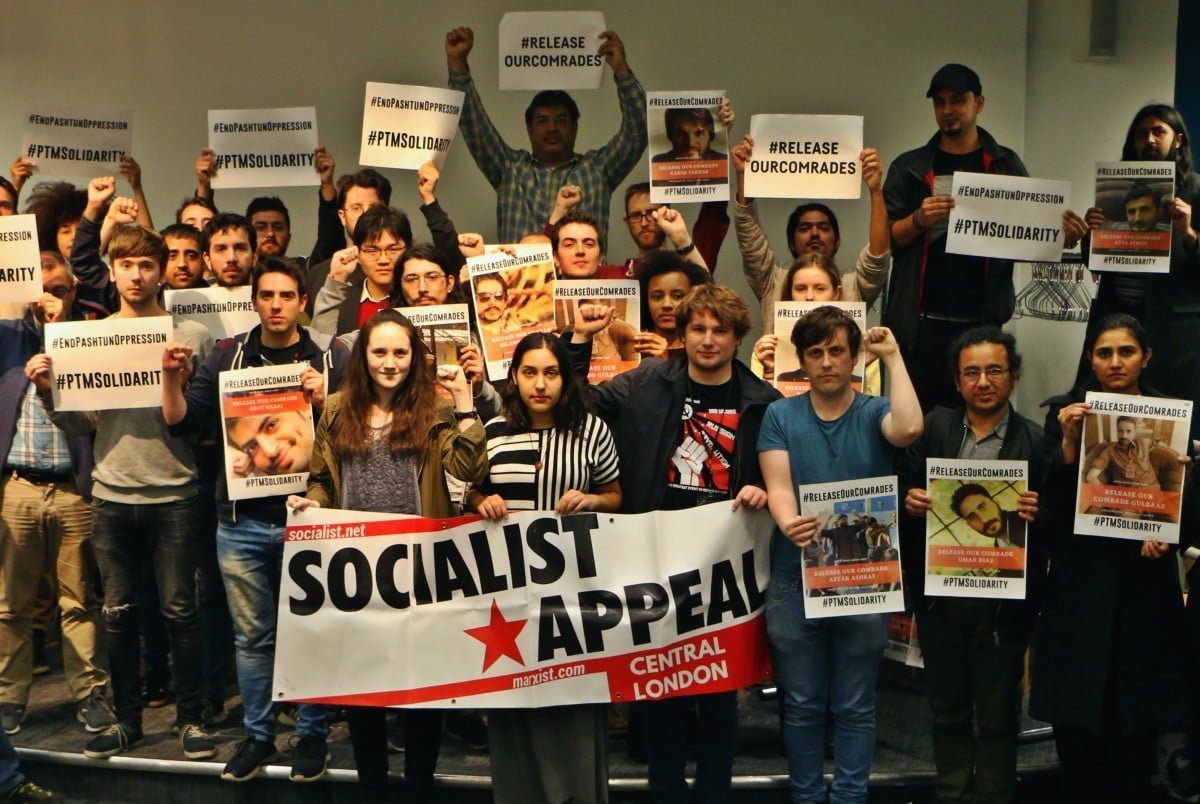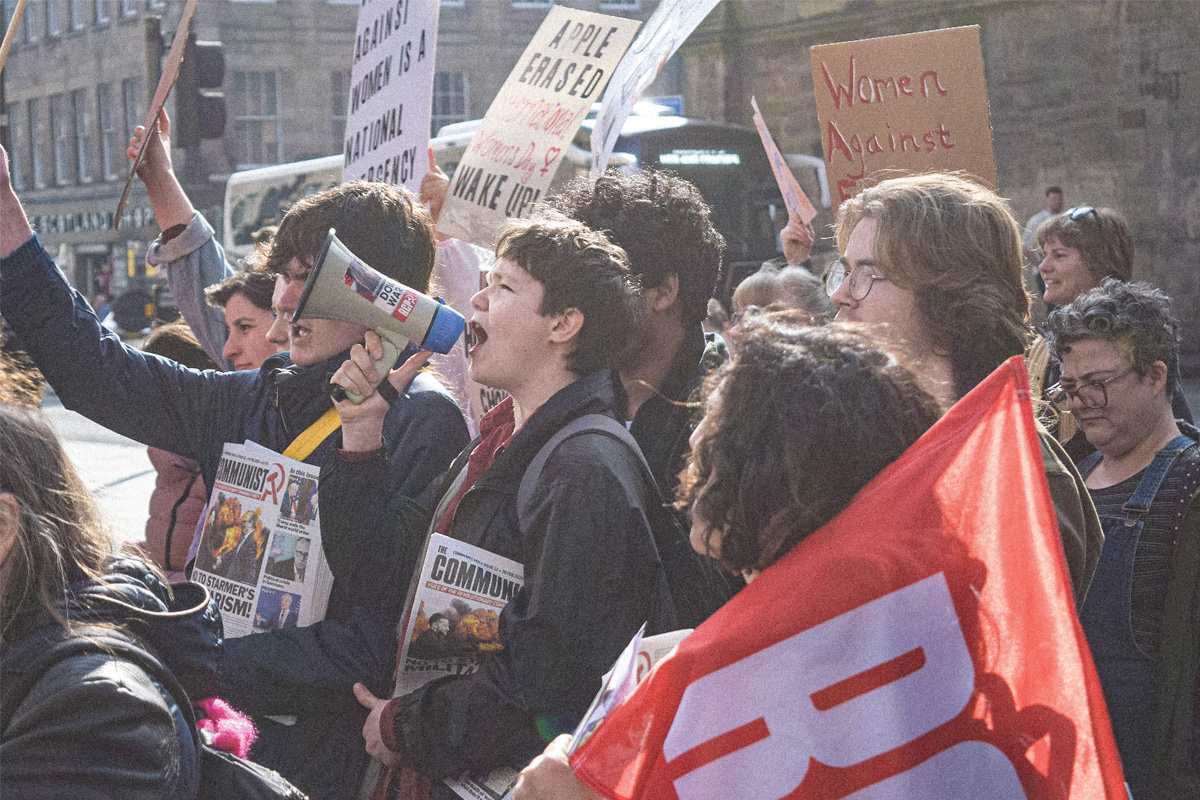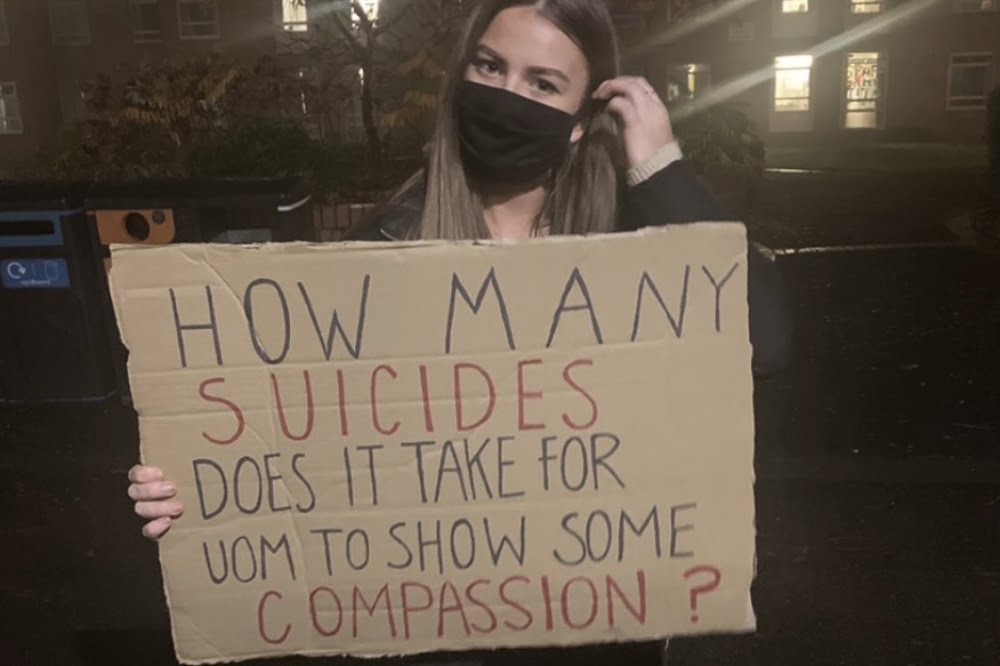International solidarity works. The abducted comrades in Pakistan have been safely released.
The international solidarity campaign launched last week to protest against the abduction of IMT [International Marxist Tendency] comrades in Pakistan has been successful. Thanks to the vigilant efforts of comrades worldwide, all of the detained activists in Pakistan have been released. This is a powerful reminder and vindication of the strength and effectiveness of international solidarity.
We publish here a report of a solidarity meeting held in London last week as part of this international campaign. The various talks given at this meeting can be seen in the video below.
On Thursday 26 April, the Marxist Student Federation (MSF) organised a public meeting for the release of abducted Pakistani socialists. The meeting was hosted by the UCL Marxist society, and was attended by a range of students, workers, trade unionists, and left-wing Pakistani activists.
Josh Holroyd from Socialist Appeal (the British section of the IMT) chaired the event. Speakers included: Fred Weston, editor of Marxist.com; Beatrice Palmieri from the Marxist Student Federation; and Arsalan Ghani from the Pakistan Trade Union Solidarity Campaign.
Josh explained how the seven prominent youth and trade union activists had been abducted by the Pakistani army and Sindh Rangers, a paramilitary state outfit, notorious for extra-judicial killings. The whereabouts of the activists was unknown, and there wasn’t any case of arrest registered against them.
These activists were all members of Lal Salaam, the International Marxist Tendency in Pakistan. They were arrested because they joined a solidarity protest for the Pashtun Tahafuz (Protection) Movement (PTM) in front of the Karachi Press Club.
As well as hosting this solidarity meeting, the Marxist Student Federation had organised a successful protest in front of the Pakistan High Commission in London the day before.
The Pashtun Tahafuz (Protection) Movement
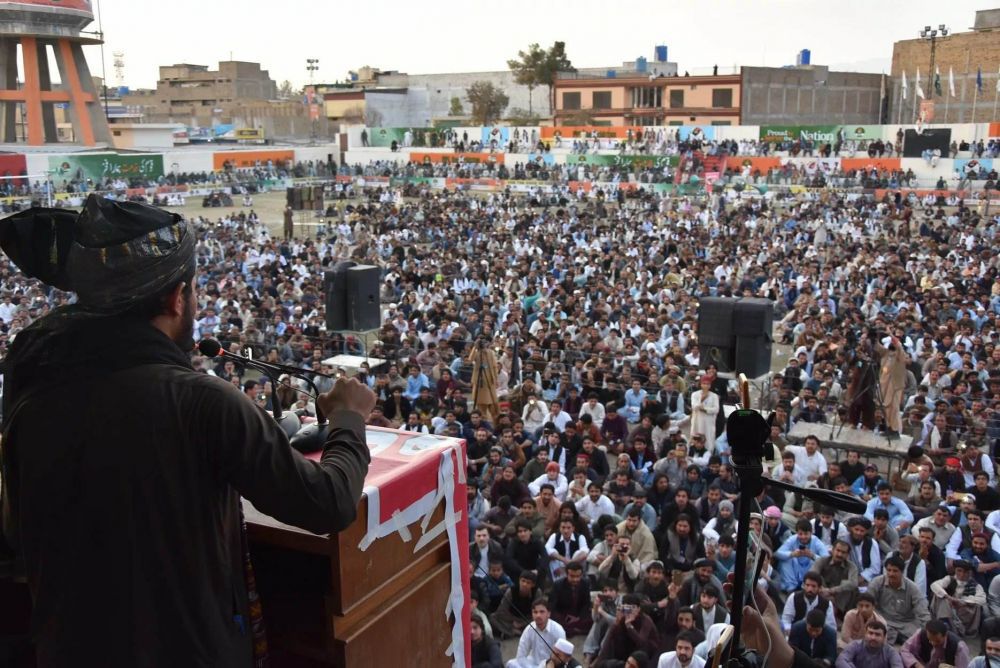 Fred Weston informed the audience that most of the abducted comrades had already been released. Only three were remaining in custody at the time. Already there was hope that these comrades would be released shortly.
Fred Weston informed the audience that most of the abducted comrades had already been released. Only three were remaining in custody at the time. Already there was hope that these comrades would be released shortly.
The release of the comrades was a result of successful local and international campaigns in different cities across the world, including protests in front of Pakistani embassies.
Fred explained the historical context of state oppression against the Pashtuns. This has involved the Pakistani state deliberately keeping Pashtun regions in savage conditions, without any public laws. The official state apparatus is absent; as a result, warlords control the region (although their interests are frequently aligned with the state).
Outside of the FATA [Federally Administered Tribal Areas], Pashtuns are the second largest ethnic group in the city of Karachi. In their areas, Pashtuns, face a triple oppression: from the Pakistani state, imperial forces and Islamic fundamentalists.
Due to immense poverty and the lack of hope for young people, the FATA have provided an easy recruiting ground for Islamic fundamentalists. Meanwhile, the “war on terror” continues. Most of the infrastructure in FATA regions have been devastated by different army operations, US drone attacks, and Islamic fundamentalist suicide explosions.
There are numerous checkpoints set up by the army, at which local Pashtuns are harassed in the name of security. Furthermore, there are landmines placed everywhere, resulting in numerous deaths and physical disabilities.
The state apparatus disappear Pashtuns who dare to raise their voice against these injustices.
Anger and discontent has been building up for many decades. This was brought to the surface and expressed in the recent PTM protests.
The PTM, led by a young Pashtun activist, Manzoor Pashteen, is organising peaceful protests and rallies across the country. Demands include: the arrest and trial of the state murderer Rao Anwar; an end to state repression in all tribal areas; the removal of army checkpoints in the Pashtun region; the clearing of all landmines; and the production of a list of all missing persons that have been abducted by the state in the last two decades.
The state is trying to defuse the movement through various means. These include threats, intimidation and abductions. Members of the Red Workers Front (RWF) and Progressive Youth Alliance (PYA) have been standing in solidarity with the PTM. The Rangers abducted members of the RWF and PYA for staging a peaceful protest in solidarity with PTM, held in front of the Karachi press club.
The Sindh Rangers are a paramilitary force that often operate above the law. They abduct people and detain them without any warrant or court orders. They are also notorious for extrajudicial killings.
Due to the successful local and international campaign by comrades of Lal Salaam and the International Marxist Tendency, however, with the support of other left-wing individuals and groups, the Sindh Rangers have been forced to release the abducted comrades. An online petition, for example, received more than 1,800 signatures from leading student activists, trade unionists and politicians.
State repression
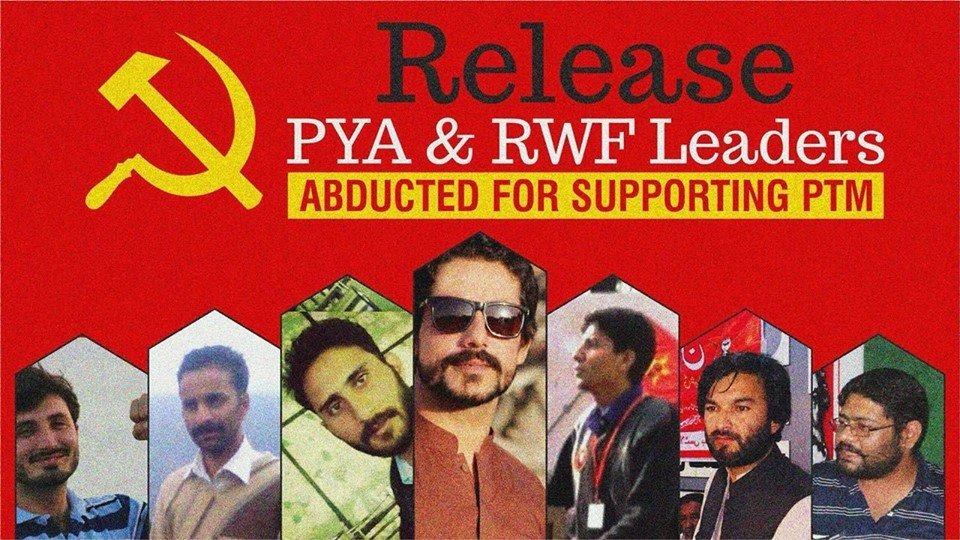 Arsalan explained the ways in which the state oppresses workers in Pakistan. The police and Rangers are instrumental in brutalising workers across Pakistan. This is especially the case in Karachi, where Sindh Rangers are notoriously involved in extrajudicial killings and extortions.
Arsalan explained the ways in which the state oppresses workers in Pakistan. The police and Rangers are instrumental in brutalising workers across Pakistan. This is especially the case in Karachi, where Sindh Rangers are notoriously involved in extrajudicial killings and extortions.
Previously, the dictatorship of Zia ul Haq created neo-fascist organisations, such as the MQM [Muttahida Qaumi Movement], with the objective of terrorising and brutalising the workers of Karachi. The shameless leader of the MQM, Altaf Hussain, is now living in London. With the decline of the MQM, the Rangers and police filled the vacuum.
Now, with the ever-increasing popularity of the PTM, the state is terrified – especially by the increasing support base for the PTM amongst Pashtun youth and workers. The biggest threat to the state is the evolving and unifying nature of the movement, which is cutting across all divides of ethnicity, religion and caste.
All the tactics of intimidation by the state are failing – and often backfiring. The abduction of RWF and PYA members has sparked an international solidarity campaign, with protests held in dozens of different cities across the world, from New York to Kathmandu.
Arsalan also discusses the work of the Pakistan Trade Union Solidarity Campaign. This was launched in 2016 with the aim of connecting issues that affect the working class in Pakistan with the rest of the international working class movement.
The campaign publishes bulletins and arranges speakers for different trade union meetings and events, highlighting the struggles of workers and youth in Pakistan. It has gained affiliations from several trade union branches in Britain, with an aim to cultivate and expand a solidarity network in Britain and internationally.
International attacks on students
Beatrice from the MSF explained the problems faced by Pakistani youth and students. There is an immense problem of privatisation in the education sector. The government is selling public universities and schools to private contractors. They are increasing tuition fees and other charges that particularly affect poor and middle-class students and their families.
Student unions are banned in Pakistan, and students are not allowed to have a say in how their institution works. Students, prior to taking up a place in an institution, are forced to sign an official statement saying that they will not take part in any political activity. Student involvement in a protest – or even just raising a grievance with the university through peaceful means – can result in expulsion.
Despite the ban on student politics, Islamic fundamentalist organisations such as Islami Jamiat-e-Talaba (IJT) are freely allowed to hold their events and recruit students into their organisations. The state and university administrations use the services of the IJT to intimidate, harass and brutalise progressive student activists on campuses.
Most notable was the case of a young student called Mashal Khan, who was lynched by state-sponsored thugs (including the IJT) a year ago as a result of accusations of blasphemy. It was revealed and even proved, however, that there was no evidence of blasphemy.
Rather, Khan was a left-wing activists who was openly talking about high fees and rents, and about the university administration’s corruption. Before his death, he gave an interview to a local news channel about his intention to reveal significant information about university management’s corrupt practices.
Comrades from the PYA in Pakistan have initiated a campaign for free education. They are demanding an end to the privatisation of education; an end to state-sponsored Islamic fundamentalism on campuses; and for the lifting of the ban on student unions.
In Britain, we also face the problem of high fees, high living costs, and the marketisation of education. Through strong links and international solidarity amongst youth and students worldwide, we can fight against all form of injustices faced by students everywhere.
Following contributions from speakers, there were various contributions from the audience, mainly relating to the future of the PTM and ways that activists in Britain can show solidarity with this mass movement.
Fred Weston summed up the meeting responding to the questions posed, and also explaining that Pakistan has become a hotbed of revolutionary uprisings. There are many lessons that students and workers in Britain can learn from the struggles of their brothers and sisters in Pakistan.

